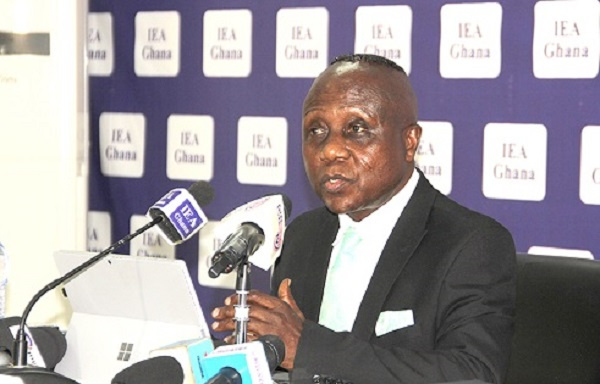The Director of Research at the Institute of Economic Affairs, Dr. John Kwakye, has indicated that the record GH¢61 billion loss by the Bank of Ghana (BoG) would force the regulator of the banking industry to cut back on some of its important operations so as to save costs.
According to him, the Central Bank’s balance sheet has been severely impacted as a result of the Domestic Debt Exchange Programme (DDEP), and is therefore surprised that the Minister of Finance, Ken Ofori-Atta and the Governor, Dr. Ernest Addison, seem to have played down the loss as only a “technical loss”.
He was reacting to the Vice President, Dr. Bwumia’s defense of the Bank of Ghana for saving the economy from collapse.
“As government debt to BoG was also discounted under the DDEP, the bank made a whopping loss of GH¢61 billion and a record negative equity of GH¢54 billion in 2022. Both the Minister and the Governor seem to have played down the loss as only a “technical loss.” However, the fact is that the Bank’s (BoG) balance sheet has been severely impacted, and this would force it to cut back on some of its important operations so as to save costs”.
Dr. Kwakye added that it is no wonder inflation peaked at 54.1% in 2022 and depreciation of the cedi ballooned to 54.2% in November 2022.
“It is the magnitude of the advance—over 50% of the previous year’s revenue—that is disturbing. It is no wonder inflation peaked at 54.1% in 2022—and depreciation ballooned to 54.2% in November 2022, before falling bank to 30.0% in December 2022”.
Dr. Bawumia strongly defended BoG for heavily monetising the fiscal deficit, especially in 2022. He commended the Central Bank for saving the economy from collapse at a time when Ghana had lost access to international capital markets.
He also said BoG’s action was responsible and that it was temporary as the Central Bank had advanced money to the government in only two of the past seven years.
The Minister of Finance had expressed similar sentiments in the past, but Dr. Kwakye said it was not surprising because government was the direct beneficiary of the monetary financing.
“However, as central bankers, we know that the most inflationary source of financing the budget is high-powered money coming directly from the central bank vault. It is not the fact that BoG advanced money to government that is the issue, for the Bank’s Act provides for such advances up to 5% of the previous year’s revenue”, he mentioned.
Latest Stories
-
Herty Corgie’s Overflow Experience 2025 fills Grace2Grace Centre with Praise
2 minutes -
Closure of Ghana’s embassy in Tehran a “step in the right direction” – Nana Yaw Mireku
8 minutes -
Ghana must uphold its sovereignty amid global power struggles – Nana Yaw Mireku
11 minutes -
Minority calls for comprehensive revenue reform as it urges full repeal of suspended Dumsor levy
16 minutes -
Appointment must be based on merit, not quotas – Justice Dzamefe on gender parity
19 minutes -
Why shouldn’t judges declare their assets? – Justice Dzamefe quizzes
23 minutes -
Let judges retire healthy at 70 and serve as assessors – Justice Dzamefe
27 minutes -
Justice Dzamefe supports uncapping of Supreme Court judges
28 minutes -
Justice Dzamefe kicks against raising retirement age for judges from 70 to 75
47 minutes -
OmniBSIC Bank relocates Osu branch to enhance customer experience
57 minutes -
GES confirms burial of one student, vows to probe drowning of 7 Lawra SHS students
57 minutes -
From 8 As in WASSCE to First Class at UG: The inspiring story of Emmanuel Annor
1 hour -
PRINCOF to serve only one daily meal to teacher trainees over financial constraints
1 hour -
CLOGSAG directs staff to strike over alleged misconduct by acting Births and Deaths Registrar
2 hours -
Moving Health and Trotula Fund equip Tumu midwifery college
2 hours

